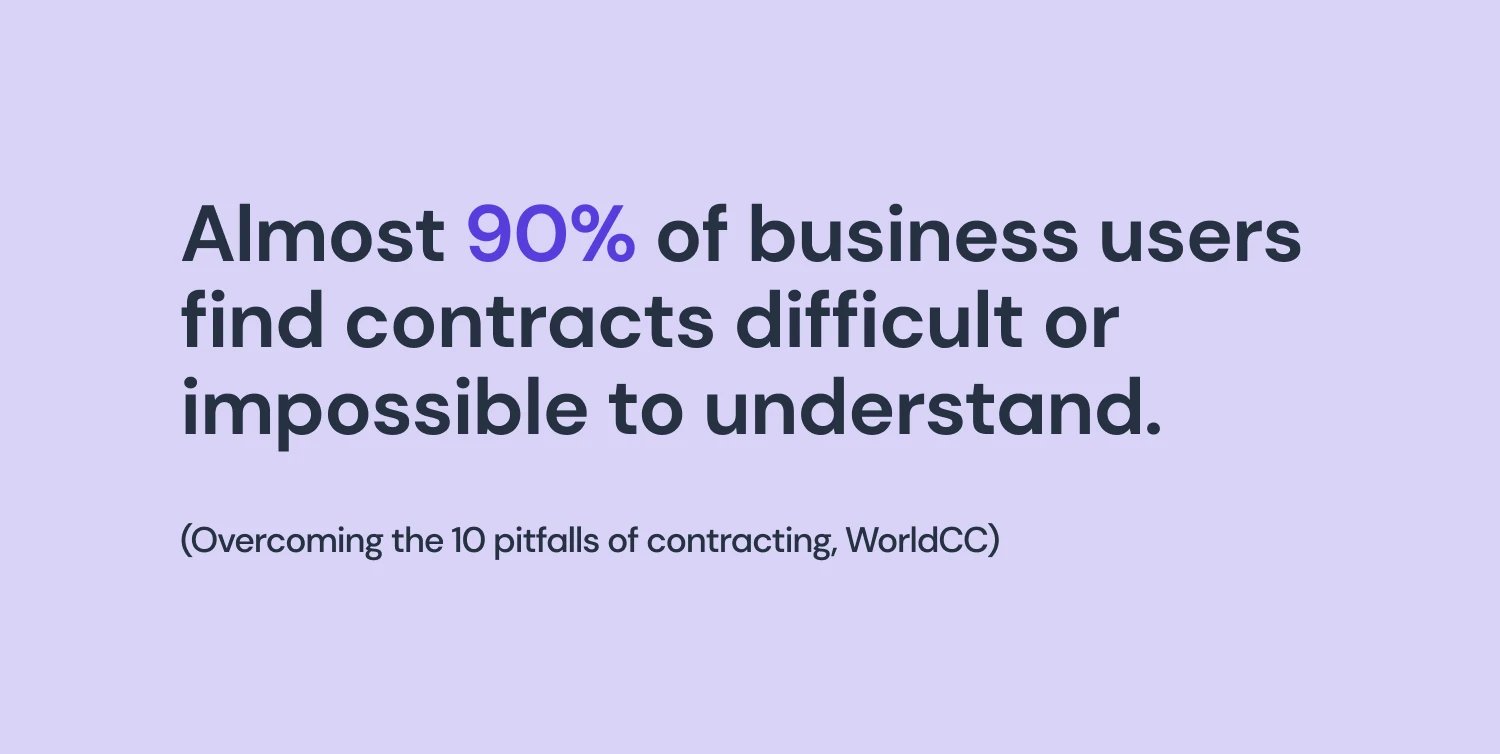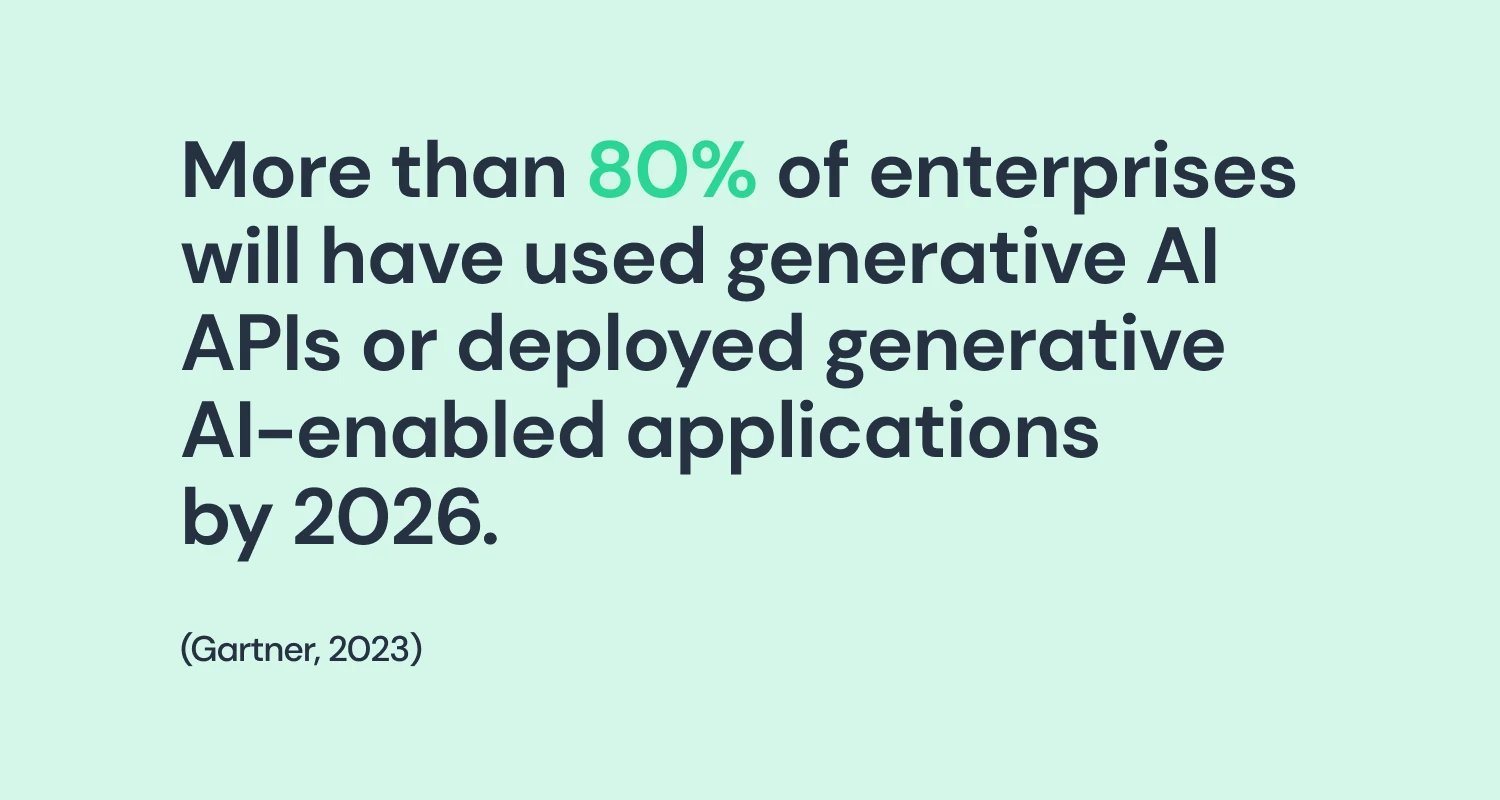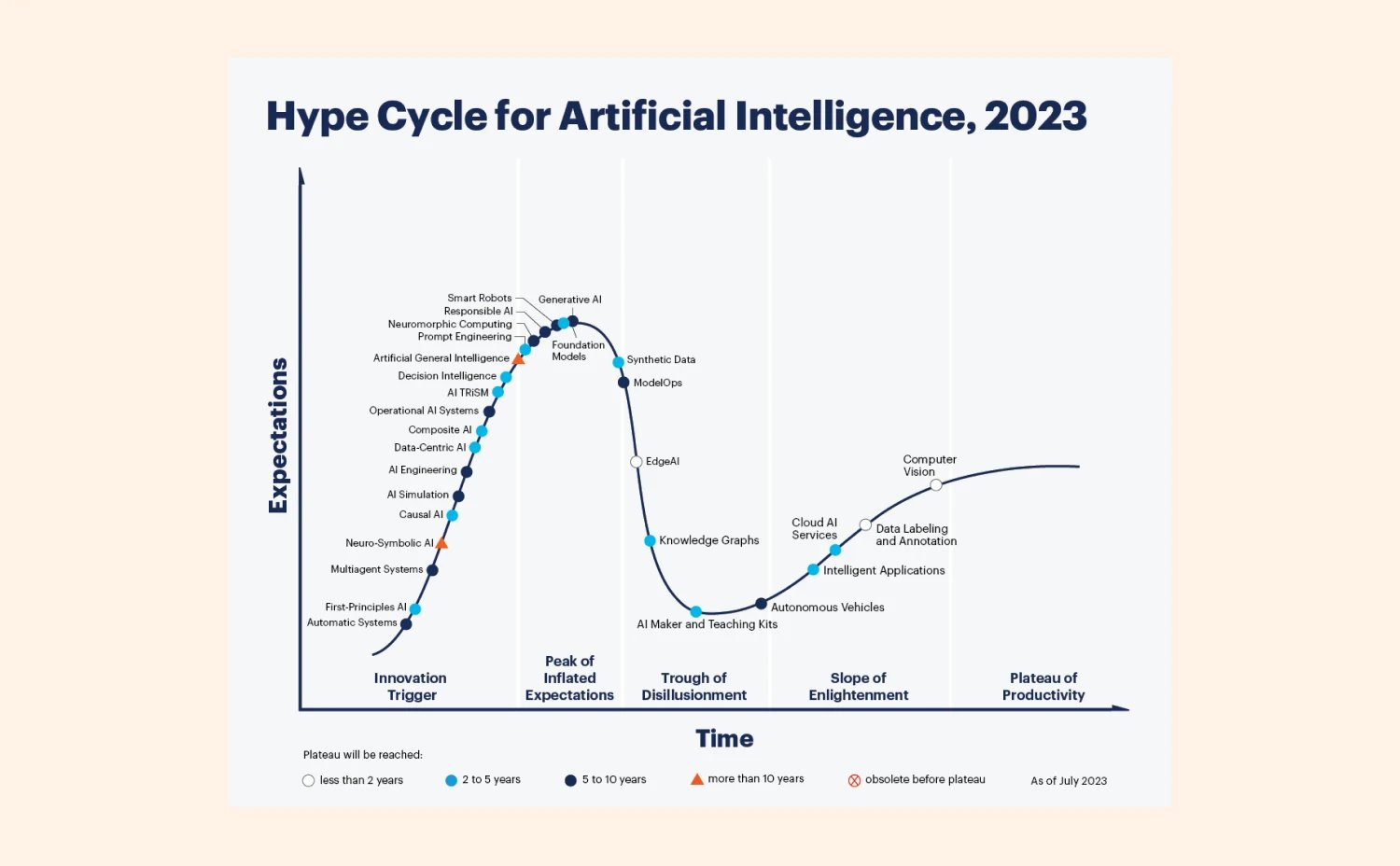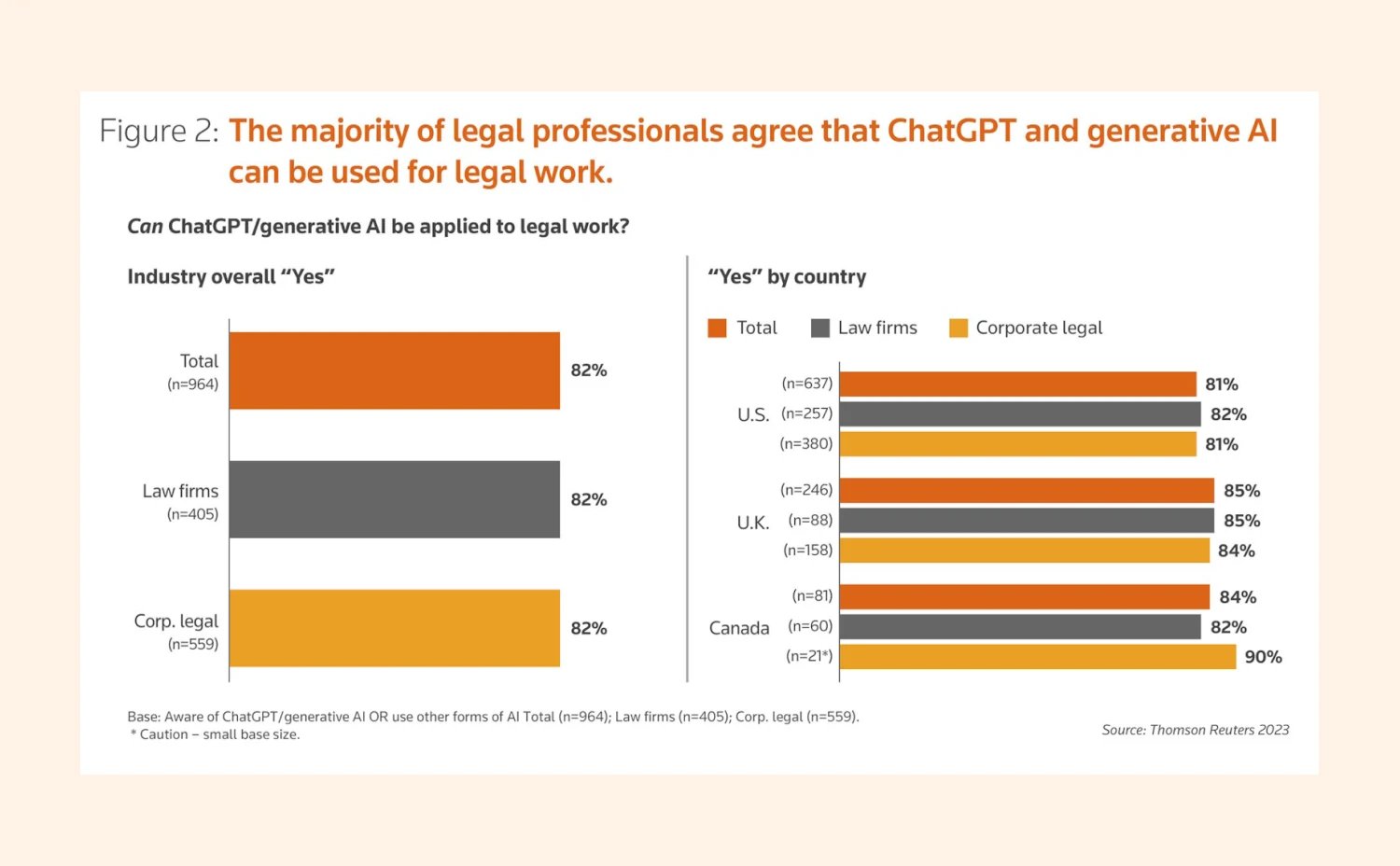Contracts are the backbone of any business, governing relationships, defining obligations, and mitigating risks. However, traditional contract management processes often involve tedious manual tasks, leading to delays, errors, and inefficiencies.
Introducing generative AI, a state-of-the-art technology that is set to completely transform the management of contracts. By leveraging advanced algorithms and machine learning capabilities, generative AI can streamline and optimize contract management processes.
But how exactly does the legal community view this innovation in contract management?
The growing adoption of generative AI
The incorporation of generative AI has piqued the curiosity of the legal community. 82% of respondents in a Thomson Reuters study were in favor of using generative AI in law, indicating a general sense of confidence within in-house legal teams.
However, it is important to exercise caution while using it and to have a clear policy that describes its application to maintain ethical and safe contract management procedures.
In this blog, we'll delve into the powerful applications of generative AI in contract management and guide you on how to integrate this technology for improved efficiency, accuracy, and overall contract lifecycle enhancement.
Understanding generative AI and its application in contract management
"Generative AI" refers to an AI system that can draw inspiration from previously collected data and patterns in order to generate new ideas and data. This means that generative AI, drawing inspiration from extensive 'data lake examples,' can find valuable insights in mountains of contracts. This is a huge plus for contract management.
Through the use of complex algorithms and machine learning, generative AI is able to extract crucial legal jargon, clauses, and provisions from contracts. When that is done, it can sort the data in a way that makes it easy to locate the needed information.
Since 90% of professionals struggle to understand contracts, this is crucial.

Additionally, generative AI is useful when creating new contracts. It recommends appropriate provisions drawn from past agreements or standard industry practices, leveraging the power of cloud data for scalable and accessible storage. This simplifies things and also saves a lot of time, which is great for keeping contracts consistent.
To be efficient and accurate, generative AI systems need extensive contract management dataset training. Data helps them understand complex legal agreements and make accurate projections.
Application in the contract management process
1. Contract drafting
Generative AI expedites contract drafting, minimizing manual efforts and accelerating the process. This is quite similar to the efficiency gained from technologies like resume parsing with Oleeo in talent acquisition.
Additionally, by utilizing generative AI, you can dynamically customize contracts to match specific criteria, which greatly improves adaptability. This is essential when drafting contracts to meet the needs of different organizations and different scenarios.
2. Contract negotiation
Generative AI aids business partner contract negotiations. This can be a good way to make sure that everyone is getting what they deserve. The AI helps flag any potential issues and provides possible solutions.
3. Enhancing collaboration and communication
Enhancing collaboration and providing a seamless experience for stakeholders is another benefit of integrating AI-powered communication tools. It improves transparency, which in turn guarantees that stakeholders have clear insights into the contract lifecycle.
4. Managing contracts
You can effectively manage contracts throughout their lifecycle with generative AI. This includes contract deadline tracking, compliance, and renewal management.
It’s also worth knowing that when managing contracts, SQL can play a crucial role in the SQL pivot row to columns functionality. This provides a more organized and accessible structure for efficient analysis.
5. Proactive risk identification and mitigation
Generative AI analyzes contract language for risks using advanced algorithms. This proactive approach detects and mitigates issues early. Generative AI's proactive risk identification and thorough analysis, including IT risk audits, ensure a comprehensive risk mitigation strategy.
In generative AI systems, smart alerts and notifications keep users up-to-date on any identified risks in real time. This feature is designed to keep the right people informed at the right time, so they can intervene and manage risks effectively.
6. Ensuring compliance with legal and regulatory requirements
Generative AI automates compliance checks, ensuring that contracts adhere to legal and regulatory requirements. Dynamic AI algorithms continuously adapt contracts to changing legal landscapes. This adaptability ensures that organizations stay compliant with evolving regulations, offering a proactive approach to legal compliance.
Generative AI also enables continuous monitoring, reducing the risk of non-compliance through real-time review of contract changes.
7. Potential benefits for contract management
There’s no denying the many benefits of implementing generative AI. Businesses are beginning to recognize this, with studies predicting that over 80% of businesses will be using generative AI-powered solutions by 2026.

- Efficiency and time savings: Automated drafting and analysis processes significantly reduce the time required for creating and reviewing contracts, allowing for faster decision-making.
- Enhanced accuracy and consistency: Generative AI minimizes the risk of human errors in contract drafting and review, ensuring consistency and adherence to legal standards.
- Optimized resource allocation: By automating routine tasks, organizations can reallocate human resources to more strategic and value-added activities, maximizing overall productivity.
- Dynamic adaptation to regulatory changes: Generative AI can stay abreast of changing legal landscapes, ensuring that contracts remain compliant with evolving regulations.
- Improved risk management: Advanced contract analysis capabilities enable the identification of potential risks, empowering organizations to proactively address issues before they escalate.
How to improve the contract management process with generative AI
Define clear objectives and requirements
- Clearly define the expected outcomes of incorporating generative AI in contract management.
- Identify specific requirements, such as document types, customization needs, and integration with existing systems.
Conduct a comprehensive data assessment
- Assess the quality, quantity, and diversity of your contract data.
- Ensure that the data used for training generative AI models is representative of your organization's contract landscape.
Collaborate with legal and IT teams
- Foster collaboration between legal and IT teams to align technology implementation with legal requirements.
- Ensure legal professionals are involved in the customization and validation of AI-generated contracts.
Security and compliance
- Ensure generative AI models comply with legal and regulatory standards, especially in highly regulated industries.
- With 25% of businesses citing security concerns as the biggest adoption barrier, you must invest in strong security solutions.
Provide training for end users
- Conduct training programs to familiarize legal professionals and other end users with generative AI tools.
- Ensure users understand how to interpret AI-generated results and maintain control over the system.
Implement gradual integration
- Roll out generative AI implementation gradually to mitigate potential disruptions.
- Keep an eye on the system's performance during integration, particularly the technologically enabled learning aspects. This often involves asking questions like "What is a Bayesian neural network?" Advanced technologies like BNNs can enhance the system's learning capabilities.
Establish clear governance and accountability
- Define roles and responsibilities for managing and maintaining generative AI systems.
- Establish accountability for the quality and legality of AI-generated contracts.
Monitor and evaluate performance regularly
- Implement monitoring mechanisms to track the performance of generative AI models.
- Regularly assess the accuracy, efficiency, and overall effectiveness of the AI in meeting contract management objectives.
Foster a culture of continuous improvement
- Encourage feedback from end users and stakeholders to identify areas for improvement.
- Iterate generative AI models based on user input and advancements in AI technology.
Stay informed on industry best practices
- Keep abreast of developments in generative AI and contract management best practices.
- Leverage industry knowledge to continually refine and optimize your AI implementation strategy.
Select the right generative AI tool or platform
- Evaluate available AI tools or platforms based on your organization's needs.
- Make sure your choice offers easy integration, scalability, and customization options.
Possible obstacles and solutions
Compatibility with existing systems
Problems with platform or database compatibility are among the technical hurdles that might arise when integrating generative AI technology into pre-existing contract management systems.
Job displacement
One source of opposition could be concerns about AI eventually taking over human jobs. It must be stressed that AI enhances human capabilities, freeing up experts to concentrate on more valuable tasks.
Developing the AI model
It takes a lot of training data to build a functional generative AI model. Getting your hands on labeled contract data for training reasons, though, can be a real pain. To overcome this obstacle, you can use pre-existing contract databases or team up with outside vendors that focus on producing top-notch training datasets.
Accuracy and quality of data
Assuring the accuracy and quality of the input data is a major hurdle when applying generative AI to contract management. Having reliable information, consistent formatting, and contracts that are well-structured are all part of this. You can tackle this challenge by implementing data cleansing processes to remove any errors or inconsistencies from your contract data.
Lack of human oversight
Promoting the collaborative aspect of AI tools, where human knowledge supplements and verifies AI-generated results, can allay fears of human interference in AI processes.
Adherence to legal requirements
Managing contracts entails dealing with legally binding documents that are either very sensitive (containing sensitive information) or are subject to several regulations. As such, the use of generative AI solutions in contract management raises serious concerns about potential privacy violations. By collaborating closely with legal teams, you can establish safe protocols for managing sensitive information and guarantee that stakeholders provide the necessary consent.
Conclusion

The hype cycle for generative AI shows that it has tremendous potential for the future.
With the continuous improvement of technology and machine learning models, generative AI will become more and more important in revolutionizing contract management practices.
Adopting this change will give businesses a leg up in the market by helping them streamline processes, make better decisions, and boost growth and success.





